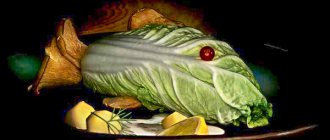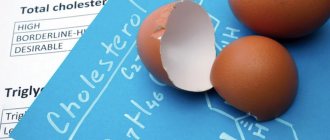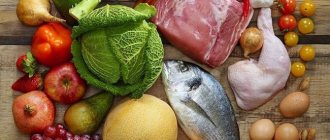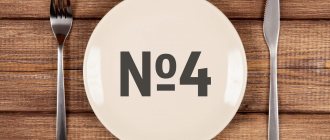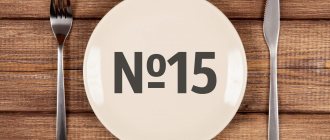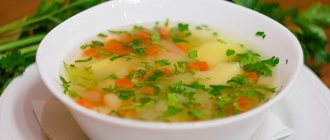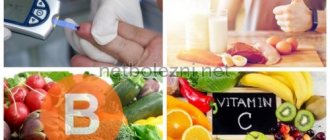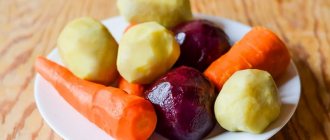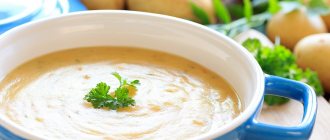Veganism is one of the forms of vegetarianism, characterized by particular rigor, selectivity and scrupulousness in the issue of nutrition. Adherents of this diet categorically refuse products associated with inhumane treatment of animals, birds, fish and even insects.
For vegans, any exploitation of all representatives of the animal world is unacceptable.
CALCULATORS FOR THOSE WHO WANT TO LOSE WEIGHT
Not only cruelty to animals is highly condemned, but also their use in scientific experiments and entertainment. All products of modern industrial livestock farming, poultry farming and fishing are strictly prohibited.
Diet rules for vegetarians
The main idea of vegetarians is not to eat animal meat. You should not eat red meat, poultry or game. Strict vegetarians also avoid fish and seafood.
The second principle of vegetarian nutrition is to eat healthy foods, without trans fats and processed foods. Preference is given to natural products, with a minimum of factory processing.
Hidden animal products that use animal body parts are also prohibited. These include rennet cheeses, gelatin, hematogen and some food additives.
What do vegetarians eat - food list
A vegetarian diet includes any edible plants, including:
- fruit vegetables;
- roots;
- leafy vegetables and greens;
- fruits;
- berries;
- cereals;
- nuts and seeds;
- legumes;
- mushrooms;
- seaweed;
- natural yeast.
The list of products allowed for vegetarians also includes everything made from plants - cereal flakes, vegetable oils, nut butters, soy cheese and cottage cheese.
Cereals, legumes and mushrooms
Grains are the best source of slow carbohydrates that supply a person with energy. Cereals contain iron, magnesium and selenium - substances that people usually get from animal foods.
Properly selected grains help avoid a common problem for vegetarians - protein deficiency. Your diet should include whole grains rich in plant protein. Among them:
- brown and red rice;
- oats;
- quinoa;
- barley;
- wheat.
But plant proteins are considered “incomplete,” so vegetarians eat cereals along with legumes. Beans, chickpeas, lentils and peas are considered complete meat replacements. In terms of protein volume, beans are not much inferior to red meat.
Another important element of a vegetarian diet is mushrooms. They are rich in protein and contain vitamins B12 and D, which are low in other plant foods. In terms of selenium and zinc content, mushrooms can be compared to beef. The structure and smell of mushroom pulp also resembles meat. The most useful are boletus, chanterelles, milk mushrooms, and portobello.
Vegetables and fruits
An obligatory part of the vegetarian menu is a variety of vegetables, herbs, fruits and berries. The basis of hot dishes are potatoes, carrots, beets, onions, turnips, cabbage and eggplants. They supply starch and carbohydrates to the body. Root vegetables and fruit vegetables help saturate the menu with iron, zinc, magnesium, carotene, vitamins B and C.
Vegetarians pay special attention to vegetables high in protein. Among them:
- spinach;
- cauliflower;
- watercress;
- broccoli;
- Brussels sprouts;
- asparagus.
Fruits and berries are a source of vitamin C, which is necessary for the absorption of iron. Other beneficial components of the fruit are potassium, magnesium, calcium and folic acid. These substances support the immune and nervous systems, strengthen bones, and protect cells from premature aging. The healthiest fruits for vegetarians are oranges, strawberries, lemons, blueberries, grapefruits and apples.
Milk, cottage cheese and sour cream
The production of milk, fermented milk products and butter does not require the direct killing of animals. But calves are separated from their mothers early to speed up milking. The bulls are slaughtered at an early age because they are not required for milk production. Cruelty to animals is the reason why strict vegetarianism excludes dairy products.
However, part of the vegetarian community, lacto-vegetarians, allow the consumption of milk. Their menu includes:
- fresh and canned milk;
- yogurt;
- kefir;
- cottage cheese;
- sour cream;
- cheese;
- butter.
The addition of these products enriches the vegetarian diet with healthy proteins, calcium, phosphorus, vitamins D and B12. The only dairy product that all vegetarians avoid is rennet cheese, because it contains renin extracted from the stomachs of slaughtered newborn calves. An acceptable replacement is cheese with a microbial or plant enzyme.
Oils, nuts, seeds
Oils extracted from various plants help fill the human body’s need for fats. Most often, vegetarians use olive, coconut, flaxseed and rice oil. In addition to healthy monounsaturated fats, these foods contain carotenoids, antioxidants and Omega-3 fatty acids.
Oils with a high smoke point are more suitable for frying - sesame, peanut, sunflower.
Another great source of healthy fats are nuts and seeds. Due to their high nutritional value, they successfully replace meat. Walnuts and Brazil nuts, which contain a lot of Omega-3 fatty acids, are considered the healthiest. Peanuts, almonds and cashews are also very popular among vegetarians.
No less useful are the seeds of various oilseeds - flax, sunflower, pumpkin, sesame. In addition to valuable fats, they contain a lot of protein, zinc, magnesium and copper.
Various vegetarian dishes are created based on nuts and seeds:
- peanut sauce;
- hummus;
- Urbech;
- nut butter;
- cashew mayonnaise.
These products can be prepared at home or purchased in specialized stores.
Sweets
Vegetarians choose sweet dishes in accordance with their main rule - no animal products. All cakes and pastries made with milk and eggs, ice cream, milk chocolate, marmalade and jelly with natural gelatin are excluded. Typically vegetarian sweets are:
- jam;
- halva;
- candied nuts and raisins;
- marmalade on agar-agar.
Dark chocolate, homemade baked goods made with sunflower oil, and natural marshmallows also do not contain animal products. Specialized stores offer a variety of delicacies for vegetarians:
- Turkish Delight;
- cereal bars;
- carob chocolate;
- waffles and cookies.
Desserts are made taking into account the principle of vegetarians - as many healthy products as possible. Sweets include whole grains, nuts and seeds, and fruits.
Bread and pasta
Classic bread is made from flour, water, yeast and salt. But modern manufacturers add milk and eggs to many varieties. Careful study of the product label will help you avoid them. Suitable for a vegetarian diet:
- Arabic pita;
- ciabatta;
- baguette;
- sourdough bread;
- pita;
- lean loaf.
- Japanese buckwheat soba noodles;
- bean vermicelli;
- corn pasta;
- Chinese rice noodles.
- kelp;
- nori;
- spirulina;
- purple;
- agar;
- fucus;
- chlorella;
- kombu.
Vegetarian supermarkets offer special types of bread, with healthy additives - vegetables, seeds, dried seaweed. Pasta for vegetarians should also be prepared without eggs or milk. Classic Italian pasta fully meets this requirement. In addition, the following pasta products are suitable for vegetarians:
You can use products from health food stores in the menu - pasta made from spelled and amaranth flour, rice spaghetti, whole grain noodles.
Food algae
One of the most important sources of protein and calcium in vegetarian cuisine is the so-called “sea vegetables” or edible algae. These include:
Sea Vegetables provide vegetarian dishes with magnesium, calcium, chromium and Omega-3 fats. They are used fresh and pickled for vegetarian salads, stews and sandwiches. Dry seaweed powder is used to season pasta sauces, soups and cereals. Dried nori sheets are a traditional sushi ingredient.
List of prohibited products
Meat and fish
Vegans do not eat meat: beef, veal, pork, lamb, horse meat. The same list includes all types of offal. Any types of meat products are excluded: sausages, wieners, pates, balyki, hams, lard, canned food, semi-finished products, broths, dry foods and culinary products.
A vegan’s diet does not contain products made from poultry meat: chicken, turkey, duck, or any game. According to ethical considerations of vegans, you cannot eat fish, caviar and seafood (squid, shrimp, mussels, crabs, lobsters).
Eggs and milk
Apart from animal flesh, eggs (chicken, quail, ostrich) are not eaten. The list of prohibited items includes milk and all types of dairy products (cheese, yoghurt, sour cream, kefir, fermented baked milk, whey, cottage cheese, butter, ice cream). Vegans condemn the cruel methods used in modern animal husbandry: captivity, constant milking, slaughter of livestock.
Bee products
Many followers of veganism do not eat or use honey and bee products (wax, propolis, beebread, pollen, royal jelly) in treatment. This is explained by the fact that beekeepers, caring for the preservation and efficiency of the hive, eliminate individual queens and drones, interfering with natural processes. It is also considered incorrect that the resulting honey is taken from the bees and sugar syrup is added in return.
Refined sugar
All products containing refined sugar are also excluded from the diet. The reason is that during the purification process, a carbon filter made from beef bones is used. A vegan diet allows only organic cane sugar, which, thanks to minimal technical processing, is rich in vitamins and valuable minerals.
Gelatin
Confectionery products made with gelatin are included in the list of prohibited products. These include: sweets, candied fruits, cakes, jelly, marshmallows, marshmallows, puddings. Gelatin is a product of animal origin. It is produced by processing the bones, hides, hooves and tendons of cattle and pigs (sometimes fish bones are used). The exception is desserts made with vegetable agar-agar. This jelly-like substance, obtained by processing seaweed, is popular in the confectionery industry.
Yeast
Vegans do not eat foods that contain yeast (living, single-celled organisms belonging to the fungus family). These include many baked goods (pizza, ciabatta, baguettes, donuts, croissants, bagels, bagels, pancakes, pancakes, etc.) and kvass.
Bakery
Bread is not a prohibited product, provided that it is made using a special technology using the correct ingredients. Most types of bread on store shelves are not suitable for a vegan diet. When baking, lubricating the molds with lard or any other type of animal fat is not allowed.
The use of L-cysteine to improve the baking properties of flour is not acceptable, since this food additive (another name is E 920) is synthesized during the hydrolysis of protein waste (bristle, wool, bird feathers). It is completely unacceptable to add ingredients such as eggs, milk (including dry milk), kefir, whey, or butter to the dough.
Mushrooms
Some vegans don't eat mushrooms. Modern science has not decided on their clear classification. In many respects they do not belong to plants. At the same time, like animals, they feed on organic substances, and chitin is present in the cells of fungi. The composition of chemical elements resembles both meat and vegetables.
Alcohol
A selective approach is also taken to drinks. Alcohol in itself is not an attribute of a healthy lifestyle. Much depends on the amount you drink. In reasonable doses, alcohol has a beneficial effect on the body: it relieves nervous tension and promotes relaxation. So, for example, 30-50 mg of vodka, whiskey, brandy or gin is quite acceptable.
Some varieties of grape wine and beer, in the production of which gelatin, refined sugar, egg whites, yeast, casein and other animal products were used, are categorically excluded.
Vegans are very selective about what the food industry offers. They carefully and scrupulously study the composition indicated on the labels, paying special attention to food additives. Most of them, before being added to food products, are tested on experimental animals.
Nutritional supplements
The natural food flavoring beaver musk, for example, is extracted from the endocrine glands of female and male beavers. The bright red food coloring carmine (E 120), often used in confectionery, is obtained from female cochineal insects.
Shellac (E 904), used in the preparation of food glazes, is synthesized from organic matter secreted by tropical insects. Fish glue, widely used in brewing and winemaking, is obtained from the swim bladders of sturgeon fish.
The food additive lecithin (E 322), used in the production of chocolate, icing, margarine and mayonnaise, as well as in the baking of baked goods, is obtained from egg yolk.
Many industrial products sometimes carry hidden dangers. For example, milk fat or milk powder can be found in healthy dark chocolate.
Some varieties of non-dairy creamers contain casein, a complex protein formed when milk curds. Shredded cheese is sometimes found in potato chips.
List of foods prohibited for vegetarians
Certain branches of the vegetarian movement allow the consumption of certain types of food of animal origin - eggs, milk, fish and seafood. But all categories of vegetarians exclude the following products from the diet:
- meat of ungulates;
- poultry;
- game;
- rabbit;
- reptiles and amphibians;
- insects.
Can vegetarians eat eggs?
Here's what's clear: those eggs you buy in the store are not fertilized by a rooster, so they don't turn into little chicks. Also, vegetarians do not eat animal proteins, which means that the following foods are unacceptable for a vegetarian:
- Domestic bird
- Seafood
- Beef
- Pork
- Lamb
- Other types of animal meat
However, vegetarians eat the following:
- Vegetables
- Fruits
- Whole grain
- Legumes
- Seeds
- Nuts
Nobody disputes this information. But, here's where it becomes important. There are actually different types of vegetarians - some eat dairy products such as cheese, milk and eggs; others believe that food obtained from an animal is unacceptable.
As a result, a vegetarian diet includes concepts such as:
- Veganism : Vegans eat only plant foods. They do not eat animal proteins or animal by-products such as eggs, milk or honey.
- Lacto-vegetarianism : Lacto-vegetarians eat plant foods plus some dairy products.
- Ovo-vegetarianism : Ovo-vegetarians include plant-based foods, dairy products, and eggs in their diet.
- Flexitarianism : Flexitarians eat a plant-based diet and may eat chicken or fish, dairy products and eggs. But only sometimes.
- Pescetarianism : Pescetarians eat a plant-based diet and seafood.
So it all depends on what type of vegetarian you are. Vegetarians do not eat any animals, including pigs, chickens, cows, fish and everyone else. In addition, a vegan does not consume any animal flesh, nor does he consume dairy milk, dairy cheese, eggs or any other product derived from an animal."
See also: Musat for sharpening knives.
Rules for creating a vegetarian menu
For a long time it was believed that eating only plant foods sharply worsens health. To eat healthy, a vegetarian diet must follow 5 rules:
- Daily calorie intake should not be less than 2200 kcal.
- Avoid a monotonous menu by using different ingredients.
- Eat 2 protein meals daily. Combine different protein foods, for example, beans with rice, lentils with broccoli.
- Eat more carbohydrates in the morning and give preference to proteins in the evening.
- Drink no more than 1 cup of coffee or tea per day - these drinks interfere with the absorption of iron.
The approximate composition of the daily diet is presented in the table.
| Product | Volume in grams |
| Vegetables | 750 |
| Fruits | 500 |
| Cereals | 200 |
| Protein food | 120-200 |
| Fats (2 different vegetable oils) | 27 |
| Other (eggs, fish, milk or extra servings of grains and vegetables) | 600 |
To avoid deficiencies of vitamins D and B12, iron, iodine and calcium, it is recommended to take vitamin supplements with these substances. Complexes with vitamin D and B12 are drunk in the morning. Since they are more soluble in fats, breakfast should contain vegetable oils. Calcium, iron and magnesium supplements are taken in the afternoon.
Doctors recommend that vegetarians and vegans get blood tests twice a year. This will help identify what substances the body lacks and determine the required dose of supplements.
The dangers of a vegetarian menu
The vast majority of doctors are against strict vegetarianism. Long-term use of the principles of veganism causes a deficiency of zinc, iron, calcium, essential acids, vitamins A, D and group B, since these substances are either absent in products of plant origin or are contained in insufficient quantities.
Although the mineral content of vegan foods may be sufficient, their absorption from plant foods is very low.
Excluding animal products from the diet can lead to dysbiosis, protein deficiency and hypovitaminosis. Therefore, doctors believe that an ill-conceived vegetarian menu cannot be used as a diet for children and adolescents, athletes, pregnant and lactating women.
Also, according to doctors, vegetarianism is contraindicated for postmenopausal women, since such a diet cannot satisfy the body’s increased need for calcium. Older people who follow vegetarian principles have an increased risk of developing osteoporosis.
All these difficulties, if desired, can be solved through a balanced and healthy vegetarian menu, which, in the absence of animal products, can contain vitamins and other beneficial substances!
However, before you decide to become a vegetarian, answer the question why you need it. If this is just a desire to support a new fashion trend or try something new, most likely you shouldn’t even start, since vegetarianism is a way of life that should be reflected not only in the plate, but also in the person’s thoughts and actions.
What do vegans eat?
Vegans are the strictest category of vegetarians. They refuse not only animal meat, but also any animal products. The vegan lifestyle excludes the use of leather, wool, fur and silk products. Medicines and cosmetics containing animal products, such as honey or wax, are also not allowed.
Many vegans eat exclusively natural foods - whole grains, organic vegetables, beans and fruits. Others limit fat content, including vegetable oils. A separate branch of vegans is represented by raw foodists, who consume dishes prepared at a temperature not exceeding + 48ᵒ C.
The essence of vegan nutrition
The main principle of a vegan diet is to eat in a way that does not cause harm or suffering to any living being. The menu is based on plants and their products. Meat dishes are replaced with beans and soy products. Popular vegan options include plant-based cheeses, oat milk, coconut milk, and nut milk. Instead of fish, artificial products from legumes, rice and algae are used.
Since vegans avoid honey, desserts are made with maple syrup and fruit extracts. Vegan salad dressings are made from nuts, grains, natural oils and vinegar.
The benefits of a vegan diet
A strictly limited plant-based diet provides many health benefits. It has been proven that vegans suffer from heart disease much less often than meat eaters. Eliminating animal foods reduces the risk of developing a number of other diseases, including:
- diabetes mellitus type 2;
- bowel cancer;
- hypertension;
- Alzheimer's disease.
Veganism protects against side effects associated with hormones and antibiotics used in animal agriculture. In addition, a plant-based diet helps speed up metabolism and, as a result, weight loss.
List of approved products
The list of permitted products includes only products of plant origin.
Cereals
The list of healthy foods includes cereals. They consist of whole and crushed grains of various agricultural crops. They have high nutritional value, rich in slowly digestible carbohydrates, proteins and vitamins (mainly groups B and E). The fibers included in the composition improve the functioning of the digestive tract, help normalize the intestinal microflora, and slow down the absorption of sugars. Vegans should take note of the following list of cereals:
- Oatmeal is a storehouse of valuable proteins and fats. Normalizes the functioning of the cardiovascular system and intestines. One bowl of oatmeal contains 25 grams of fiber.
- Buckwheat is rich in valuable microelements (calcium, magnesium, phosphorus). The amount of carbohydrates in it is small, making this cereal low-calorie and at the same time satisfying.
- Eating all varieties of rice is beneficial for people suffering from high blood pressure.
- Wheat cereal contains protein - an important element for intense physical activity. Sprouted wheat germ is rich in a large amount of B vitamins and minerals. They help normalize the functioning of the stomach. Bran, containing coarse dietary fiber, has a positive effect on intestinal motility.
- A distinctive feature of pearl barley is its high phosphorus content. This valuable microelement is responsible for the functioning of brain cells and promotes the elasticity of muscle tissue.
- Millet is ideal for people who want to lose weight. Low in calories, contains fiber and vegetable protein, rich in potassium, magnesium and iron.
Porridges made from any type of cereal are good as an independent dish. Buckwheat, rice, pearl barley, and millet can be added to soups to add satiety and nutrition. Cutlets, meatballs, casseroles, and puddings are prepared from cereals.
Paste
Pasta, noodles, spaghetti, and pasta are allowed for vegans, provided that these products do not contain eggs. It is advisable to choose varieties from durum wheat.
Nuts
Nuts and seeds are an integral element of the diet. They contain polyunsaturated fatty acids, which have a beneficial effect on brain function. They have a lot of fiber, protein, nutrients, vitamins and microelements. They satisfy hunger well, ideal as a hearty snack, and as an addition to salads and cereals.
Berries and fruits
Berries and fruits are the favorite foods of vegan fans. They are rich in vitamin C, folic acid, potassium and many other microelements. When frozen, they do not lose their beneficial properties and can be consumed all year round.
Vegetables and greens
Vegetables and herbs are essential elements of the daily diet. They have a positive effect on the body’s vital functions, increasing the percentage of absorption of each individual vitamin. They reduce the aggressive effects of toxins and fight diseases of the cardiovascular system. Contain biologically active, mineral and pectin substances, as well as organic acids and fiber. Ideally consumed raw.
Soy products
Soy products (butter, flour, milk, cheeses, meats, soy sauce) are also present in a vegan diet. Their distinctive feature is their high protein content (up to 50%), B vitamins and valuable polyunsaturated acids.
Despite the existing restrictions, vegan cuisine is quite diverse, interesting and healthy.
THESE ARTICLES WILL HELP YOU LOSE WEIGHT
What do vegans eat - food list
Despite the restrictions, the list of vegan products is quite extensive. It includes:
- Legumes - peas, lentils, beans, chickpeas, soybeans.
- Nuts and seeds - almonds, cashews, peanuts, walnuts, Brazil nuts, pumpkin and sunflower seeds, chia, flaxseed.
- Cereals - brown rice, oats, wheat, millet, buckwheat, quinoa.
- Vegetables - any root vegetables, fruits and leafy vegetables.
- Algae - kelp, fucus, spirulina, nori, chlorella.
- Mushrooms.
- Fruits and berries.
Vegans also use products made from plants - tofu, natto, vegetable oils, nut pates and spreads.
What vegans shouldn't eat
Veganism rejects food produced from killed living beings. Products created as a result of the exploitation of animals are also prohibited. This list includes:
- all types of meat (including semi-finished products, sausages and canned food);
- bird;
- fish;
- game;
- seafood;
- eggs;
- milk;
- fermented milk products;
- butter;
- baked goods;
- honey.
Food additives and dyes made from animal products are ethically unacceptable for vegans. Thus, albumin and lecithin added to confectionery products are obtained from egg white. Gelatin, necessary for the production of jelly, marshmallows and marmalade, is made from animal bones. Food coloring E120 is made from insects.
These products can be found in wine, beer, caramel, chewing gum and breakfast cereals.
Vegans choose vitamin complexes and dietary supplements with caution. Vitamin D preparations are made from fish oil, and collagen complexes are made from cattle cartilage.
